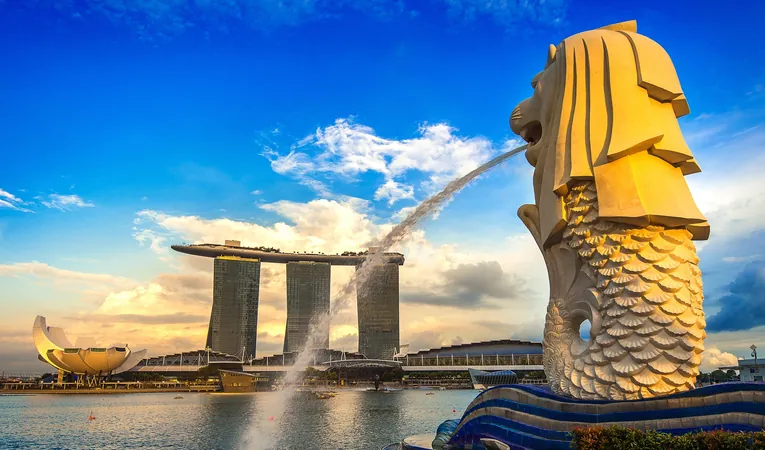
Is Singapore Really Not Asia? German Tourist Sparks Controversy with Bold Statement
2024-12-28
Author: Jia
SINGAPORE: The debate surrounding Singapore’s identity has intensified after a German tourist allegedly claimed that the city-state is "not really Asia" during a recent gathering, igniting discussions on social media platforms, particularly Reddit.
In a post made on December 26 by user u/ScaleWeak7473, they recounted their astonishment at overhearing a German woman at a party expressing her views on Singapore’s status. Her reasoning? The tourist labeled Singapore as “rich and developed, not dirty,” suggesting that these characteristics somehow disqualify it from being considered a part of Asia.
What was even more surprising to the poster was that several attendees at the party, including other Westerners as well as guests from China, Malaysia, and South Korea, seemed to concur with her assessment. This led to a perplexing moment for the original poster, who struggled to articulate a response to such broad claims about Singapore’s identity.
The poster attempted to argue that countries like Japan, which has been highly developed since the 1960s and maintains a reputation for cleanliness, certainly qualify as part of Asia. However, the German tourist countered by claiming Japan retains its cultural uniqueness with language, temples, traditional attire, and imperial heritage, which she felt Singapore lacks.
A Chinese attendee further added that Singapore’s status as a “British Colonial outpost” contributed significantly to its development, hinting at a disparity in cultural essence when compared to places like Hong Kong, which he claimed possesses more “feeling.” The original poster interjected to clarify that many of Singapore’s advancements, such as its modern public transport, world-renowned Changi Airport, and luxurious Marina Bay Sands, came in the years following the end of British rule.
Despite these counterarguments, the partygoers who shared the tourist’s perspective remained largely unconvinced, leaving the poster feeling outnumbered and disheartened.
Following the post, many Reddit users expressed their disappointment over the remarks. One commenter questioned the notion that “Asia equals poor,” challenging the stereotypical views often held by those unfamiliar with the continent's complexity. Another user emphasized that countries like Japan and Korea are just as intrinsically Asian as less developed nations like Laos or Cambodia, highlighting the dangers of oversimplification.
One insightful comment criticized the German tourist’s belief that Asia is homogenous, suggesting that such views may stem from an unconscious bias which many would rightfully find offensive. Others offered a more compassionate perspective, proposing that language barriers might have influenced her remarks, encouraging the poster to engage in dialogues that could help broaden her understanding.
As the discussion continues online, it raises broader questions about how cultural perceptions and economic status influence our understanding of geographic and national identity. Singapore, often hailed for its remarkable transformation from a colonial outpost to a vibrant metropolis, remains a testament to the complexities of modern Asia—rich in diversity, yet too easily misunderstood.
While the German tourist's comments may have rubbed some the wrong way, they serve as a reminder of the importance of dialogue in dismantling stereotypes and fostering a deeper appreciation for the multifaceted nature of Asian cultures.

 Brasil (PT)
Brasil (PT)
 Canada (EN)
Canada (EN)
 Chile (ES)
Chile (ES)
 Česko (CS)
Česko (CS)
 대한민국 (KO)
대한민국 (KO)
 España (ES)
España (ES)
 France (FR)
France (FR)
 Hong Kong (EN)
Hong Kong (EN)
 Italia (IT)
Italia (IT)
 日本 (JA)
日本 (JA)
 Magyarország (HU)
Magyarország (HU)
 Norge (NO)
Norge (NO)
 Polska (PL)
Polska (PL)
 Schweiz (DE)
Schweiz (DE)
 Singapore (EN)
Singapore (EN)
 Sverige (SV)
Sverige (SV)
 Suomi (FI)
Suomi (FI)
 Türkiye (TR)
Türkiye (TR)
 الإمارات العربية المتحدة (AR)
الإمارات العربية المتحدة (AR)